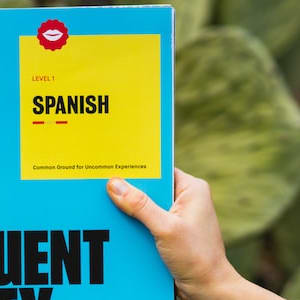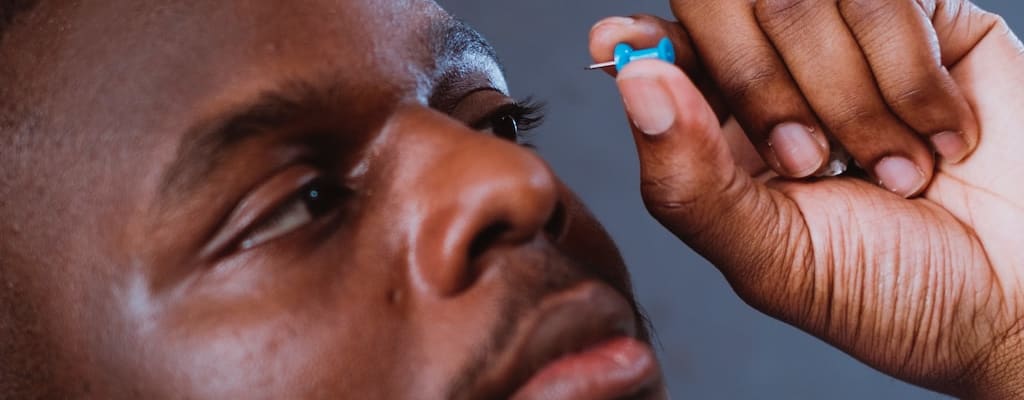say what: Idiom Meaning and Origin
What does ‘say what’ mean?
Say what: An informal expression used to express surprise, confusion, or disbelief when someone says something unexpected or difficult to believe.

Idiom Explorer
The idiom "say when" means to indicate when something is enough or satisfactory.
"Say the word" means expressing readiness or willingness to do or provide something as soon as one is asked or instructed to.
The idiom "say that" is used to express surprise or disbelief when someone makes a statement that is unexpected or hard to believe.
The idiom "say no more" is used to convey that there is no need to provide further explanation or information, as the listener already understands the intended meaning.
The idiom "say it all" means to fully express or reveal everything, leaving nothing unsaid or unexplained.
The idiom "say again" is used to ask someone to repeat or clarify what they have just said.
The idiom "raise eyebrows" means to cause surprise, curiosity, or disapproval. It suggests that something is unexpected or unusual, often leading others to question or doubt the situation or action.
The idiom *quote unquote* is used to indicate that the words or phrase being quoted are sarcastic, ironic, or not to be taken literally. It is often used to indicate skepticism or to distance oneself from the quoted expression.
The idiom "quelle surprise" is a sarcastic remark used to express a lack of surprise or to mock something that is expected or predictable.
The idiom "pray tell" is used to politely ask someone to provide information or share a secret or surprising fact.
Decoding the Quizzical Phrase
The idiom "say what" is an informal expression widely used in American English. It is commonly employed in everyday conversations and informal writing. The phrase is often used to express surprise, disbelief, or confusion. It doesn't have a literal meaning and is an example of idiomatic language. The origin of the idiom is uncertain, but it is believed to have originated in African American Vernacular English (AAVE). In the 1990s, the idiom gained popularity, especially in hip hop and pop culture. It can be used as a standalone phrase or as part of a longer sentence.
When used, "say what" is typically rhetorical, seeking clarification or repetition. It is frequently employed rhetorically to express astonishment or disbelief. The idiom has become a common element in contemporary American English, particularly in informal speech and digital communication. It is often adapted into other phrases like "you don't say," which holds a similar meaning.
The idiom "say what" has become deeply ingrained within American English. Its origins may be rooted in African American Vernacular English, but its usage has expanded to permeate various aspects of contemporary language. It serves as a means of expressing surprise, confusion, or disbelief. Though the exact origin may remain a mystery, the idiom continues to intrigue and be embraced by English speakers, adding color and nuance to our everyday conversations.
The idiom "say that" is a related expression that is often used in conjunction with "say what." It is used to introduce a statement or a quotation. For example, someone might say, "My friend told me that she saw a UFO last night." In this case, "say that" is used to introduce the reported statement. The use of "say that" can provide context or set up a conversation by relaying information from someone else.
Another related idiom is "quelle surprise," which is a French expression meaning "what a surprise." This phrase is sometimes used sarcastically to indicate that something is not surprising at all. For example, if someone says, "It rained on our picnic day," another person might respond with "quelle surprise," implying that rain on a picnic day is no surprise at all. "Quelle surprise" can be used in a similar way to "say what" to express disbelief or irony.
The idiom "say what" is an informal expression widely used in American English. It is often used to express surprise, disbelief, or confusion. The exact origin of the idiom is uncertain, but it is believed to have originated in African American Vernacular English. The phrase gained popularity in the 1990s, especially in hip hop and pop culture. It can be used as a standalone phrase or as part of a longer sentence. When used, it is typically rhetorical, seeking clarification or repetition. The idiom has become a common element in contemporary American English, particularly in informal speech and digital communication. It is often adapted into other phrases like "you don't say." Additionally, the related idioms "say that" and "quelle surprise" provide additional context and ways to express surprise or irony. Overall, the idiom "say what" adds color and nuance to our everyday conversations.
Example usage
Examples of how the idiom "say what" can be used in a sentence:
- "Say what? I can't believe you're going skydiving!"
- "Say what! You won the lottery? That's amazing!"
- "Say what again? I couldn't understand you the first time."
The idiom "say what" is commonly used as an expression of surprise, disbelief, or confusion. It is often used to seek clarification or to express astonishment. The phrase "say what" is typically followed by an exclamation mark and is used in informal conversations or everyday speech.
More "Interjections" idioms



